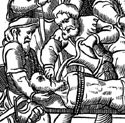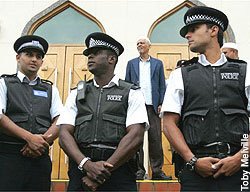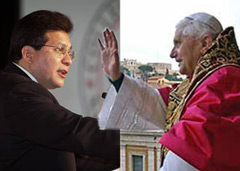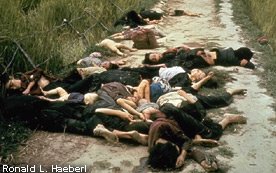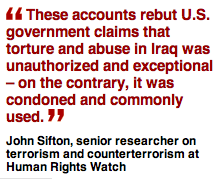Speak No Ill of the Dead (except Saddam)
I know we all want to feel good about Gerald Ford, especially now that he has died. And why not? He was a war hero, a reliable legislator, an athlete, an Ivy Leaguer, a steadying influence for a nervous and unsettled nation, a loyal and devoted husband, and by all accounts a really nice guy.
Let's go ahead and feel good about him.
But why does this preclude, seemingly, any widespread questioning of his decision to pardon Richard Nixon? Especially in light of the fact that the imperial administration of George W. Bush has been presiding over an unprecedented usurpation of power for the executive branch, championed in large part by none other than Dick Cheney, Ford's Chief of Staff at the time.
So far, the prevailing winds blowing in from the punditry sound like mere variations on the theme of Ford's own view that the pardon meant, simply, that "our long national nightmare is over."
But really, couldn't it be that the nightmare was just beginning?
If there is a major current of opinion in the popular press that has mounted an argument against the pardon, I have missed it. Jake Tapper said something in his blog, "Political Punch", on ABCnews.com, but where is the widespread analysis that might serve to better elucidate the national sentiment regarding the limits of Presidential power, at a time when this issue is of historically consequential relevance?
As Vladimir Nabokov said, "at every moment there is a thus and otherwise." No one really knows where "otherwise" leads. It might have turned out that a trial and perhaps eventual imprisonment of Richard Nixon would have made the nation not weaker, but stronger, both by meting out justice, and thereby lending some credence to the maxim that "in America, no one is above the law," and also by firming-up some of the mushier questions regarding our Constitutional separation of powers. The question can't be answered definitively, but why isn't it being asked?










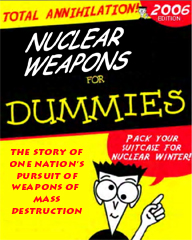




 In another time,
In another time, 




